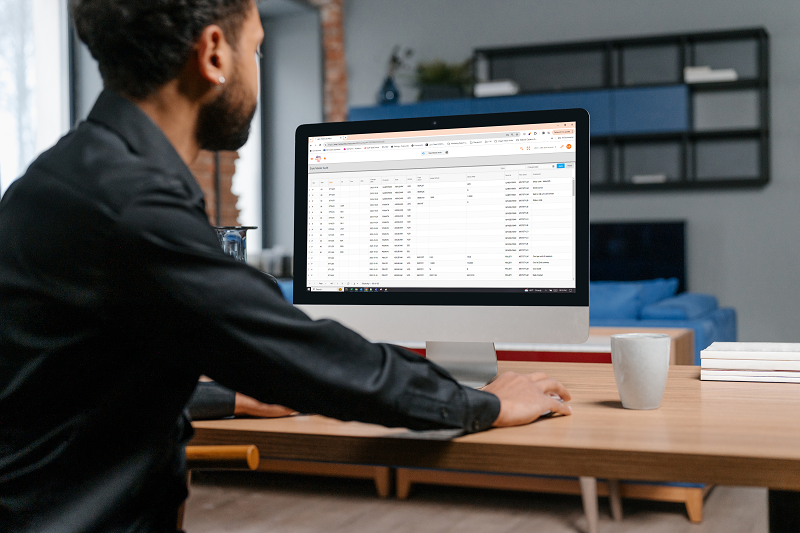When is it Time for Smaller Brands to Invest in Apparel Software?
Published: April 14

As a company grows, so does the amount of data, inventory and processes that need to be tracked. This growth makes small businesses more prone to recording data errors, repeating tasks and disappointing customers. Welcoming an ERP software into your company’s business model is the perfect way to avoid these common growing pains.
Signs Your Company Needs an Apparel ERP Software
Some companies are willing to sacrifice the ease of utilizing ERP software in order to avoid the inconvenience associated with training and cost necessary to implement it. There does reach a point, however, where obtaining ERP software becomes a necessity if you wish to avoid losing business due to the inability to successfully keep up with orders. These are some common signs that is time for your company to take the plunge:
- It has become difficult to calculate the amount of inventory in your warehouse.
- You are unable to predict an evidence-based sales estimate for the next quarter.
- Your employees struggle to fill orders when there is a slight, unexpected rise in orders.
- Attaining exact figures from your manufacturing, accounting, etc. teams becomes an issue.
- It’s becoming difficult to remember which employee to contact or spreadsheet to search when you have a question about a specific item.
- You are constantly encountering surpluses or shortages.
- Production issues and missed deadlines are no longer a rare occasion.
- You’re spending a lot of money and time training employees how to use all the different software applications you use to keep the business running smoothly.
Benefits of Having ERP Software
Aside from allowing your company to avoid pitfalls, ERP software provides many benefits. Countless business owners attribute their success to the additional time, control and flexibility they find after implementing ERP software. Some of the many benefits of having an ERP software include:
Simple Integration
In their early stages, companies often have different spreadsheets or databases for each department. For example, the production area will keep a running list of inventory, while accounting keeps a separate list of records of the pricing information for those goods. These departments will then separately send their list to organization members in other departments who need it. This means that you have numerous employees entering the same data, so you’re paying multiple individuals to do the same work. It also creates a huge opportunity for error if any, or multiple, of these employees were to key in incorrect numbers. With ERP software, your database will automatically be updated and visible to all departments in real-time as soon as a sale or movement is made. Your company will save time and money, while avoiding human error.
Enhanced Productivity
Employees will find that repeating administrative and tedious tasks are a thing of the past. ERP software streamlines business operations such as inputting sales, updating inventory, sifting through purchase orders, processing invoices, maintaining client interactions, etc. This leaves team members with critical time that can be used to develop the business and increase sales. Employees will also finally be allotted the necessary time to truly excel in their specific position.
Maintain Control with Ease
Relying on multiple databases across departments can work for a short while. But, as business grows and demands increase, this method will inevitably lead to the input of incorrect information, lost orders, inventory shortages/surpluses, missing invoices, lost shipments and more. Inputting one set of information into a trusted ERP software eliminates the possibility of these mistakes and allows you to maintain the trust of your customers.
Keep Data Secure
The information you store within your company’s ERP software tends to be the most confidential. As hacking becomes more common, it is important to consider this sensitivity. This is where ERP software fills a necessary gap. There are firewalls and security measures built in upon installation. When new hacking and malware trends emerge, updates are released to combat these new threats.
Utilizing ERP software is also a natural protection mechanism against potential internal threats. Without a centralized, integrated software, companies tend to rely on minimalistic spreadsheet alternatives. Data is frequently emailed back and forth, passwords are shared to make sure everyone has access if they need it, etc. There’s no way to track which individual made specific changes or viewed certain information. ERP software makes this a nonissue. Each user gets their own ID to access the data. Their access to certain spreadsheets is restricted, based on what is relevant to their position. The items they view and actions they perform are tracked and can be viewed by management if an issue does ever arise.
Better Decision-Making
Excellent decision making requires having all facts; lack of real-time information leads to wasteful allocation of time and resources. Below are some examples of how ERP software can be helpful in avoiding waste for many departments in your organization.
- Management and Production Teams: ERP software will make it easy to detect the potential of a bottleneck in the chain of production that may cause a shift in the estimated delivery time of products. This gives your production team an opportunity to proactively combat this matter and it gives your management team crucial time to make things right with customers expecting the product.
- Financial Team: ERP dashboards make tables, graphs, charts and easy-to-decipher graphics readily available to the financial team. A steep decline in sales or recurring invoicing issues will be instantly apparent, allowing your company to react in a timely fashion. This is especially essential for small businesses, as capital is limited and crucial to growth.
- Human Resources: ERP software is helpful in highlighting gaps where recruitment may be necessary.
Next Steps
Does ERP software sound like it could take your company to the next level? Contact us today! We are available by email at info@apparelbusiness.com , or phone at (800) 426-7880 .


We will get back to you as soon as possible.
4325 Alexander Drive, Suite 100
Alpharetta, GA 30022-3740
Apparel Business Systems | All Rights Reserved








